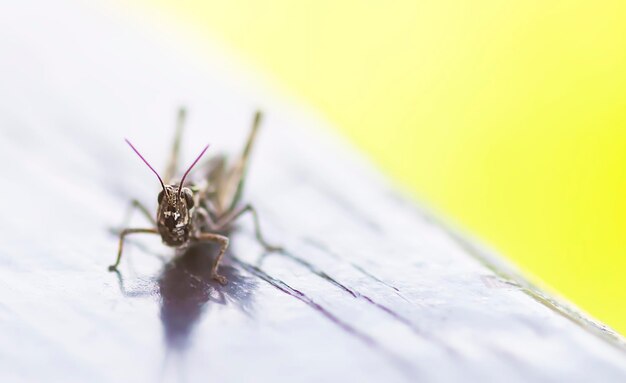Can Mosquitoes Really Survive in a Refrigerator? Understanding Their Limits and Behaviors
Mosquitoes are notorious for their biting and buzzing, often becoming an uninvited nuisance in our homes. But what happens if a mosquito finds its way into a refrigerator? Can it survive in such cold conditions? Understanding the survival mechanisms of mosquitoes in different environments, especially unusual ones like a refrigerator, is not only fascinating but can have practical implications for managing these pests. In this article, we'll delve into this scenario, explore the biological limits of mosquitoes, and provide practical insights into their behaviors and vulnerabilities.
🦟 The Mosquito's Adaptability
Understanding Mosquito Biology
Mosquitoes, like many insects, are ectothermic, meaning their body temperature is influenced by the environment. This characteristic generally makes them vulnerable to extreme temperatures, particularly cold ones. Understanding this aspect is crucial when considering their survival in a refrigerator.
Key Biological Traits:
- Temperature Sensitivity: Mosquitoes thrive in warm conditions. Most species become inactive or die at temperatures below 50°F (10°C).
- Life Cycle Stages: The mosquito's life cycle includes egg, larva, pupa, and adult stages. Each stage has varying degrees of temperature tolerance.
Natural Habitats vs. Artificial Environments
Mosquitoes are typically found in warm and humid environments, which support their life processes. In nature, they have adapted to various conditions, but extreme cold is generally not favorable. Artificial environments, like refrigerators, pose significant challenges to their survival.
Refrigerator Conditions:
- Average Internal Temperature: Typically between 37-40°F (2.7-4.4°C), a range that is stressful for mosquitoes.
- Lack of Humidity: Refrigerators maintain low humidity levels to preserve food, adding another layer of stress for mosquitoes.
🍽️ Can a Mosquito Survive in Your Fridge?
The Immediate Impact on Mosquitoes
When a mosquito enters a refrigerator, the drop in temperature has immediate effects. The cold environment slows down their metabolic processes, leading to decreased activity and eventual dormancy.
Potential Survival Time:
- Short-term Impact: Inactivity occurs almost immediately.
- Long-term Survival: Few mosquitoes can survive longer than a few hours or days, depending on the conditions.
Why Refrigerators Are Unfriendly to Mosquitoes
Refrigerators are designed to preserve food by maintaining cool and dry conditions. These parameters are in direct opposition to what mosquitoes need to survive. Hypothermia in mosquitoes typically leads to dehydration and starvation, which are fatal.
🔍 Exploring Related Questions
How Do Mosquitoes Enter Refrigerators?
Although unlikely, mosquitoes can inadvertently make their way into refrigerators through human activity. They might enter during food placement or removal, especially if doors are left open. However, mosquitoes do not actively seek out refrigerators as they do not provide any nutritional or physiological benefits.
What Happens in Other Cold Environments?
Mosquitoes exhibit similar vulnerabilities in other artificially cold environments, like air-conditioned rooms or during cooler weather seasons. They might enter a state of torpor—a temporary hibernation-like state to conserve energy until conditions improve.
🔧 Practical Tips to Prevent Mosquito Intrusion
Ensuring that mosquitoes do not end up in your refrigerator or home requires simple, effective measures:
- Secure Door Seals: Ensure the refrigerator door seals tightly to prevent accidental entry.
- Control Indoor Mosquitoes: Use screens on windows and keep doors closed to limit mosquito access to your home.
- Time Outdoor Activities: Be mindful of opening and closing refrigerators quickly if mosquitoes are prevalent in your area.
Additional Measures
Using mosquito repellents and traps can help control their population inside living spaces. Regularly check and clear any standing water around your home since mosquitoes breed in stagnant water.
💡 Considerations for Mosquito Management
The Broader Context of Mosquito Control
Understanding that refrigerators are not hospitable environments for mosquitoes can give you peace of mind. However, it emphasizes the importance of managing mosquitoes in more conventional settings:
- Environmental Control: Regular cleaning, sealing possible entry points, and landscape management can greatly reduce mosquito habitation.
- Biological Control: Natural predators, like certain species of fish and dragonflies, can keep mosquito populations in check.
Research and Development
Research continues into mosquito behavior and survival, with a particular focus on understanding their resilience. This information is crucial for developing better pest control methods that are environmentally friendly and sustainable.
📋 Summary: Key Takeaways
Here are some practical insights to keep in mind:
- ❄️ Refrigerators Are Uninhabitable: A refrigerator’s cold and dry conditions are unsuitable for mosquito survival.
- 🚫 Limited Entry: Mosquitoes seldom, if ever, purposefully enter refrigerators, as it does not serve their survival needs.
- 💧 Control Breeding Grounds: Eliminate standing water to reduce mosquito populations.
- 🪟 Seal Entry Points: Keep windows and doors well-sealed to prevent mosquito intrusion in the home.
The interaction of mosquitoes with cold environments like refrigerators underscores their limits and vulnerabilities. While it's amusing to speculate on a mosquito's journey into a fridge, practical steps in mosquito management focus on understanding habitats conducive to their life processes. By appreciating these elements, you can better manage and mitigate the impact of mosquitoes in your home and surroundings.
This guide should provide you with practical insights into managing unwanted mosquito activity without the unfounded fear of them surviving in your fridge! 🍃

